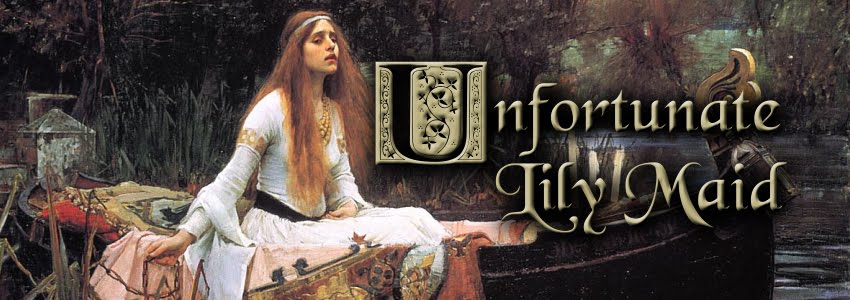To I.Don't.Want.To.Grow.Up:
I think you really should read the books. I say that as a future English teacher and as a lover of all things C.S. Lewis. I really think that this film complements the book quite well. They expand and elaborate on each other. That being said, here are my thoughts on the ending of the film and the kind of "downer" note:
In The Voyage of the Dawn Treader we get a little more insight as to what Aslan may have told Susan and Peter because he speaks with Lucy and Edmund about why they won't be going back to Narnia again:
In other words, yes. The ending of Caspian is rather bittersweet. I think that as you get older you appreciate it more. I really struggle with it. So much of my life is in dream-land. The thought of growing up bothers me because I have invested so much of myself into building and shaping my imagination. But Aslan isn't asking Peter and Susan to forget Narnia altogether, he is just telling them that they cannot live there any longer. Part of growing up is learning not to "dwell in dreams and forget to live."
"Please, Lamb," said Lucy, "is this the way to Aslan's country?"
"Not for you," said the Lamb. "For you the door into Aslan's country is from your own world."
"What!" said Edmund. "Is there a way into Aslan's country from our world too?"
"There is a way into my country from all the worlds," said the Lamb; but as he spoke his snowy white flushed into tawny gold and his size changed and he was Aslan himself, towering above them and scattering light from his mane.
"Oh, Aslan," said Lucy. "Will you tell us how to get into your country from our world?"
"I shall be telling you all the time," said Aslan. "But I wil not tell you how long or short the way will be; only that it lies across a river [...] You are too old, children," said Aslan, "and you must begin to come close to your own world now."
"It isn't Narnia, you know," sobbed Lucy. "It's you. We shan't meet you there. And how can we live, never meeting you?"
"But you shall meet me, dear one," said Aslan. [...] "But there I have another name. You must learn to know me by that name. This was the very reason why you were brought to Narnia, that by knowing me here for a little, you may know me better there."
I think another part of it rests in the growing and evolving faith of the characters. Lucy, in particular, represents the greatest amount of innocent faith. She believes everything without question. In The Lion the Witch and the Wardrobe she is the first to discover Narnia. She accepts that there could be such a place instantly and she continues to believe it into Prince Caspian and Dawn Treader. Of all her siblings - as the youngest - she exhibits the greatest amount of innocent faith. I think what Lewis is trying to say, though - and this is only my opinion - is that a greater more mature faith is good as well. Peter and Susan are old enough to ask questions and make decisions and learn some more complicated aspects of religion. Lucy and Edmund aren't quite that old. So their saying good-bye to Narnia is somewhat bittersweet and the movie played it excellently - they are simultaneously growing up and moving away from a kind of innocence and accepting the challenge of finding Aslan again elsewhere.
As for "Things never happen the same way twice" - I think it means exactly what it sounds like. It's sort of like how the immune system works. From my (limited) understanding of how the body functions, we don't typically get the same strain of a cold or flu or another virus because our body builds up immunity to it, right? It's the same way with life experiences. The challenges we are given are never the same from one to another. The circumstances are always a bit different. We need these tweaked circumstances because we've built up a kind of emotional/intellectual immunity to the first challenge. We have already grown from that event in one way or another and we don't need to grow in that exact same way again. Aslan is telling Lucy that things never happen the same way twice because He believes that we need to grow in many different ways - not the same way over and over again.
Of course, this is just my opinion. There are lots of interpretations.
Have I mentioned lately how much I love Narnia?!
